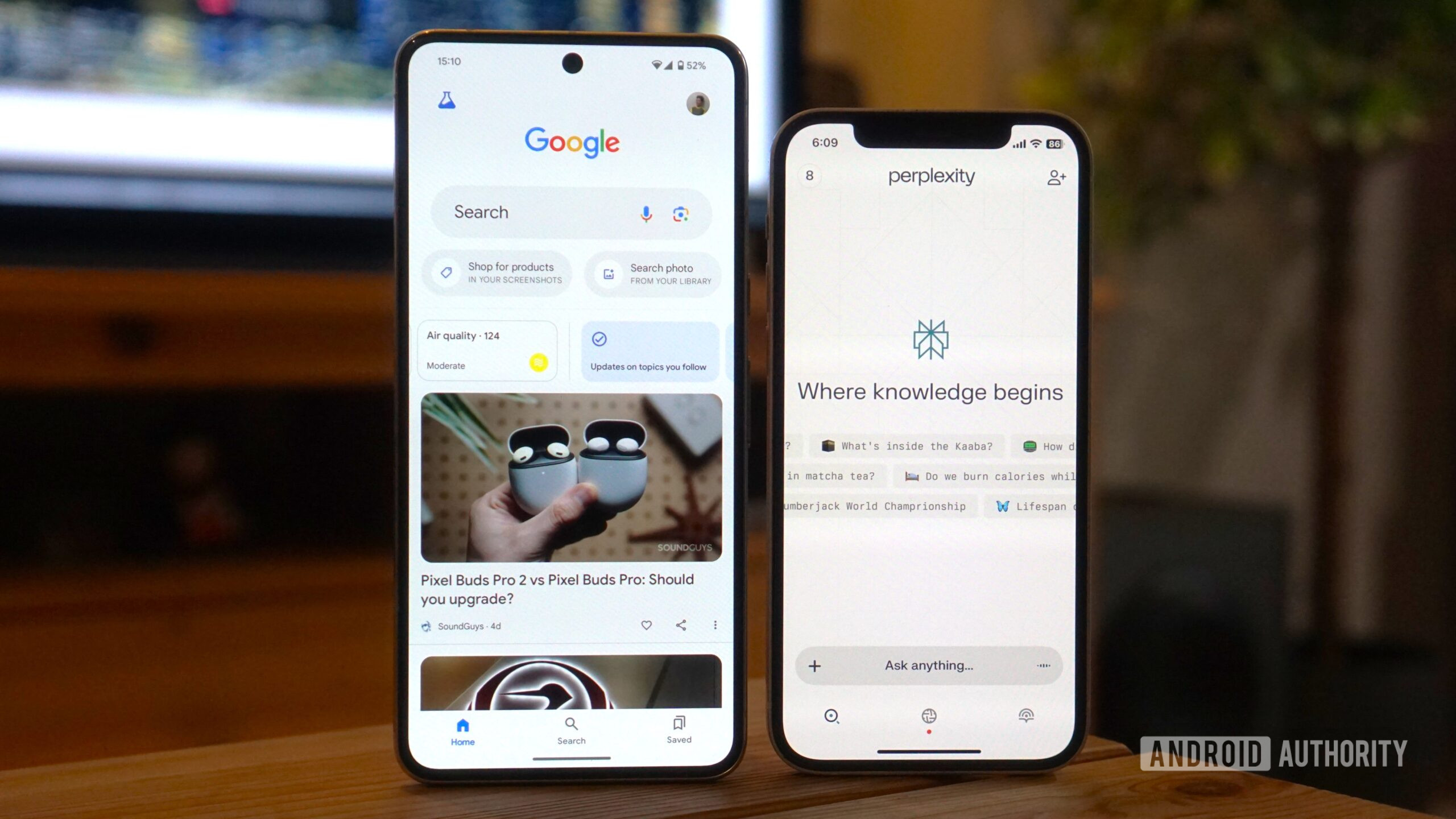
Calvin Wankhede / Android Authority
Browse any technology forum these days, and you’ll find a recurring theme: people aren’t happy with Google search. It’s not exactly hard to see why — type in a query, and you’re often greeted with shallow articles that barely skim the surface of the topic. It’s such a common complaint these days that entire AI startups like Perplexity are now trying to replace Google entirely, promising to offer straight-to-the-point answers without all the fluff. But can Perplexity really outdo Google search or is it just another AI platform riding the hype train? I tested it over the past few weeks to find out.
What is Perplexity and how does it differ vs Google search?
Perplexity bills itself as an “answer engine” in an attempt to set itself apart from traditional search engines like Google. Instead of serving up a list of links, it provides direct and concise answers to your questions by pulling information from multiple sources and quickly compiling them into a single response. It uses generative AI, but rather than creating an in-house model, Perplexity relies on third-party language models like GPT and Claude.
Perplexity excels when you need to find answers to questions like “why is daylight saving time necessary?” or “should I wet or dry brine turkey?” The summarized answers are ready in less time than it would take to manually read through multiple each search result. And you still get a list of links that you can click on for more information.
Perplexity responds with answers backed by citations instead of a list of links.
Perplexity isn’t the first or only AI tool that promises to condense information from various sources. Google’s AI Overviews do the same thing, but the feature has attracted endless criticism for hallucinating and picking shoddy sources. In one particularly egregious instance, Google’s AI referenced a decade-old Reddit thread to suggest using glue to stop cheese from sliding off a pizza.
Even though it’s valued at a billion dollars, Perplexity is a bit of an underdog in the AI race — you rarely hear it discussed in the same breath as ChatGPT or Gemini. However, it has gained a decent bit of traction among power users, largely thanks to its Pro Search feature I’ll discuss later.
Google has been forced to scale back its AI Overviews feature following the many embarrassments that have surfaced since its launch. So has Google’s failure to capitalize on the technology’s potential opened the door for Perplexity and other AI startups like OpenAI?
Perplexity vs Google: The free experience compared
For Perplexity to succeed and prove useful in everyday use, it has to offer accurate responses based on reputable sources. That’s a simple task in theory, but it’s difficult for an unpredictable AI model to follow through on. Google has tuned its AI Overviews feature to prevent hallucinations like the aforementioned glue-on-pizza saga, but I have noticed that it still references questionable sources — such as TikTok in the screenshot below.
Comparing the actual response quality, though, Google and Perplexity are pretty much neck and neck for this question. I like that Perplexity’s response included several in-line citations, which I could easily click on. Google’s output was much shorter, with just one citation per entire paragraph. This meant I could not verify the accuracy of individual sentences as easily as Perplexity. It doesn’t matter for such a simple question but I might want to cross-check references if I’m using the search engine’s responses for college or work.
For my next prompt, “next FOMC meeting,” Google didn’t include an answer or an AI-generated response. On the other hand, Perplexity responded with the date and a brief explanation of the US Federal Reserve’s meeting calendar. However, I spotted an AI hallucination here — Perplexity said that interest rates haven’t changed since July 2023, which is false as the Fed already cut rates by half a percentage point.
You may have noticed that the above Google result page doesn’t include an AI Overview. This is no accident — the search engine only surfaces AI summaries for a small percentage of responses. So if the AI-powered information density and associated time-savings matter to you, Perplexity is the far more consistent option of the two.
I could go on with more examples, but my conclusion over several weeks of testing is that Perplexity is indeed faster than Google for quick research. Whether I was looking for the cheapest means of transport between two cities in Thailand or curious about the effect of rate cuts on the stock market, Perplexity consistently delivered the answers I needed with citations. I used Pro Search whenever I needed the most accurate responses, but more on that below.
Perplexity is now my go-to search engine on mobile whenever I need a quick blurb of information.
Perplexity also offers a chatbot-like interface, which means you can ask follow-up questions. It feels like a hybrid of ChatGPT and Google search overall, while being more useful than either of them individually.
However, things finally took a turn for the worse when my search terms were less clear. The prompt “Compare the latest smartphone models from Apple, Samsung, and Google” yielded results describing the iPhone 13 and 14. In fairness, I wouldn’t type such an open-ended question into Google, but the search engine at least returned results for the iPhone 15 and other modern phones.
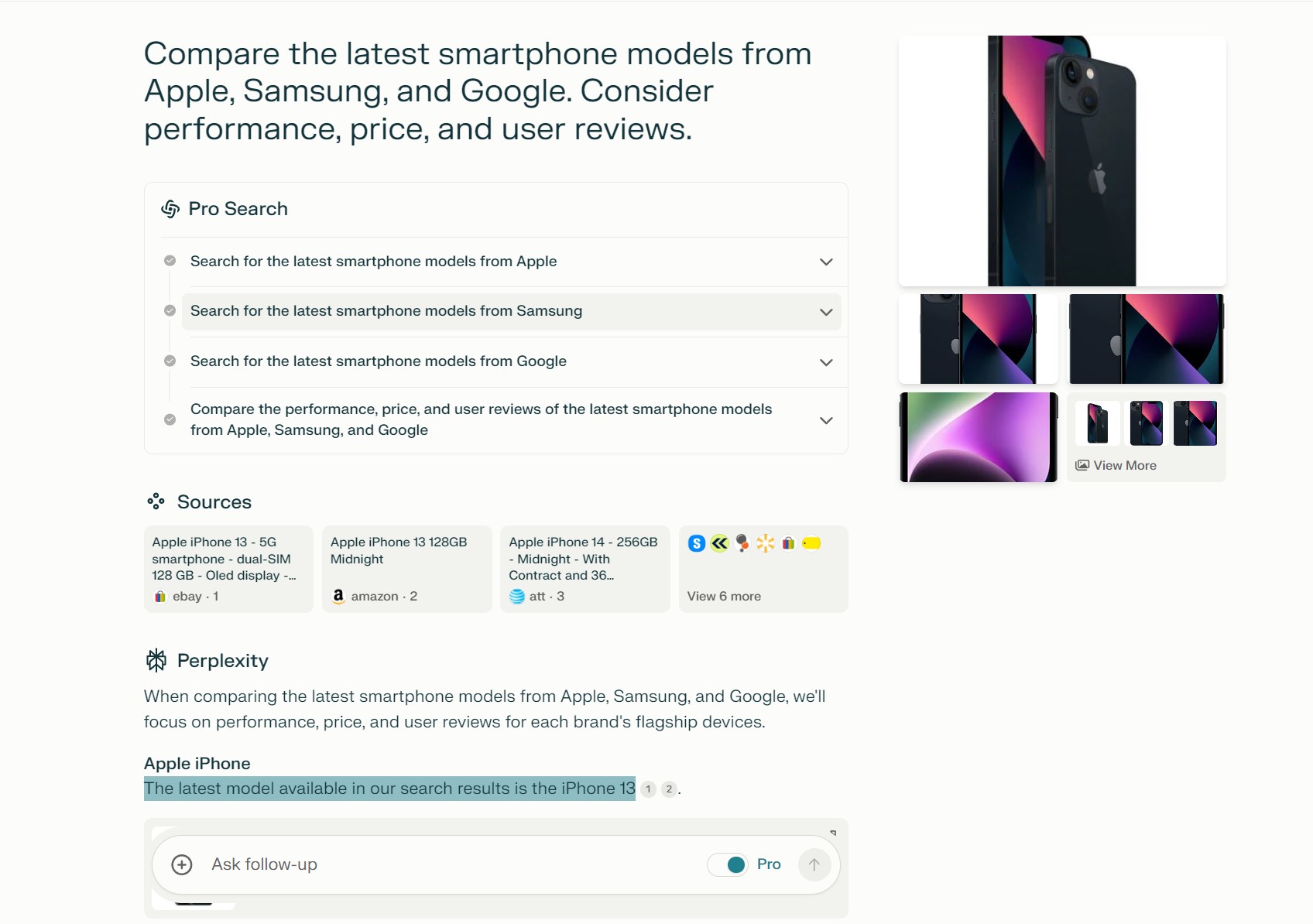
Calvin Wankhede / Android Authority
Perplexity Pro Search: Where Google can’t compete
I’ve only talked about the baseline Perplexity experience so far, but the platform has another ace up its sleeve: Pro Search. It essentially performs a deeper search and parses more sources before answering your query. However, you only get five Pro Searches per day for free. Beyond that, you’ll have to pay the $20 monthly Perplexity Pro subscription. The subscription also unlocks higher quality responses via more intelligent AI models like GPT-4o.
Perplexity’s Pro Search also got a big upgrade a few months ago, allowing the AI to reason out complex searches similar to a human. This allows the AI to answer extremely complicated and multi-part questions that would trip up even some of the best AI chatbots.

Calvin Wankhede / Android Authority
Perplexity Pro
Take the above screenshot, for example, where I asked Pro Search to compare the returns of two stock tickers over ten years while accounting for currency differences. Perplexity broke down this query into four individual searches, mimicking how I would go about solving the problem. The result included math calculations, which Perplexity hands off to Wolfram Alpha. It all worked impressively well, but Perplexity did take over a minute to generate its response.
Will I switch from Google to Perplexity?
Given the impressive results, you might be wondering if it’s worth setting Perplexity as your default search engine instead of Google. I contemplated the choice myself, but at least half of my online searches involve looking up local businesses, finding real-time information like the weather, or navigating to a specific website like Amazon. I could use Perplexity for some of these tasks, but it would be slower and much less efficient. I also would not trust generative AI to fetch my flight status given the risk of hallucinations.
Bottom line then, Perplexity is a bit overkill for simply navigating the web and Google is still the best choice if you’re only trying to reach your bank’s login page. Having said that, Perplexity has replaced Google for about a third of my daily searches. The app now lives on my phone’s home screen, right above the Google search bar. Rather than replacing my primary search engine then, Perplexity has replaced traditional AI chatbots like ChatGPT and Google Gemini almost entirely. The latter will only selectively search the internet, while Perplexity does it every single time. This perhaps explains why OpenAI has created SearchGPT, which is currently being tested behind closed doors.
Do you see yourself ditching Google for an AI-powered search engine?
Would you ditch Google for an AI-powered search engine?
0 votes
Both Google and Perplexity have their place. Perplexity is better if you need quick answers backed by citations while Google typically only offers a set of search results.

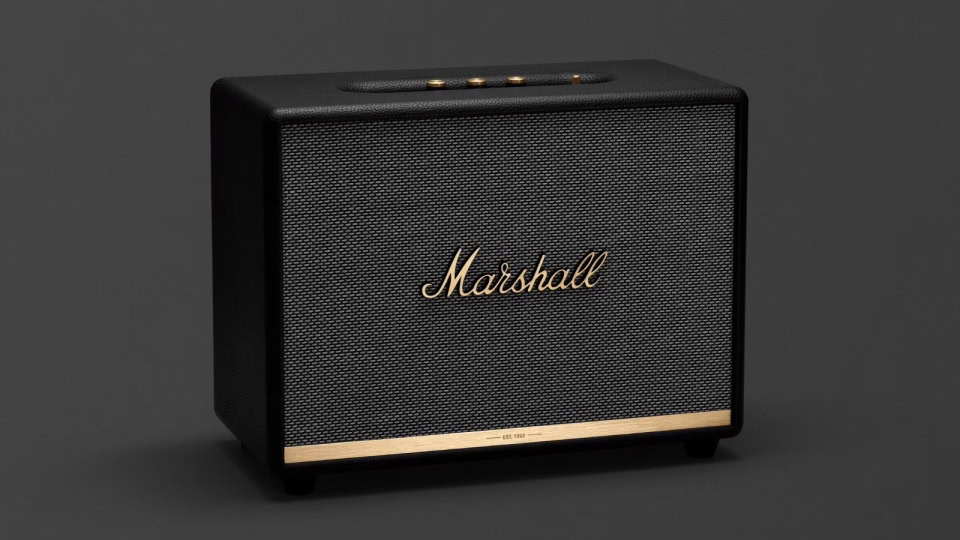
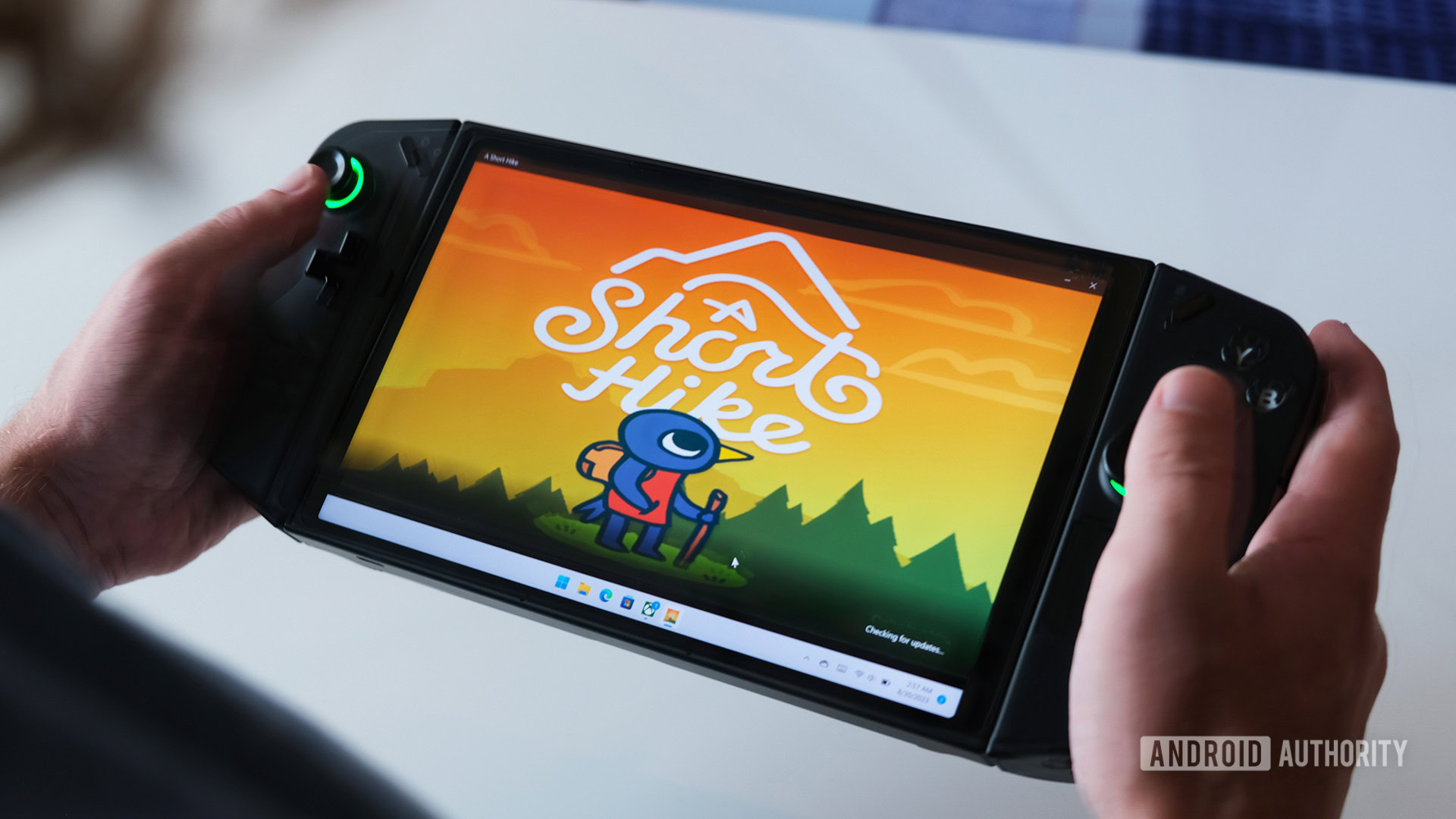
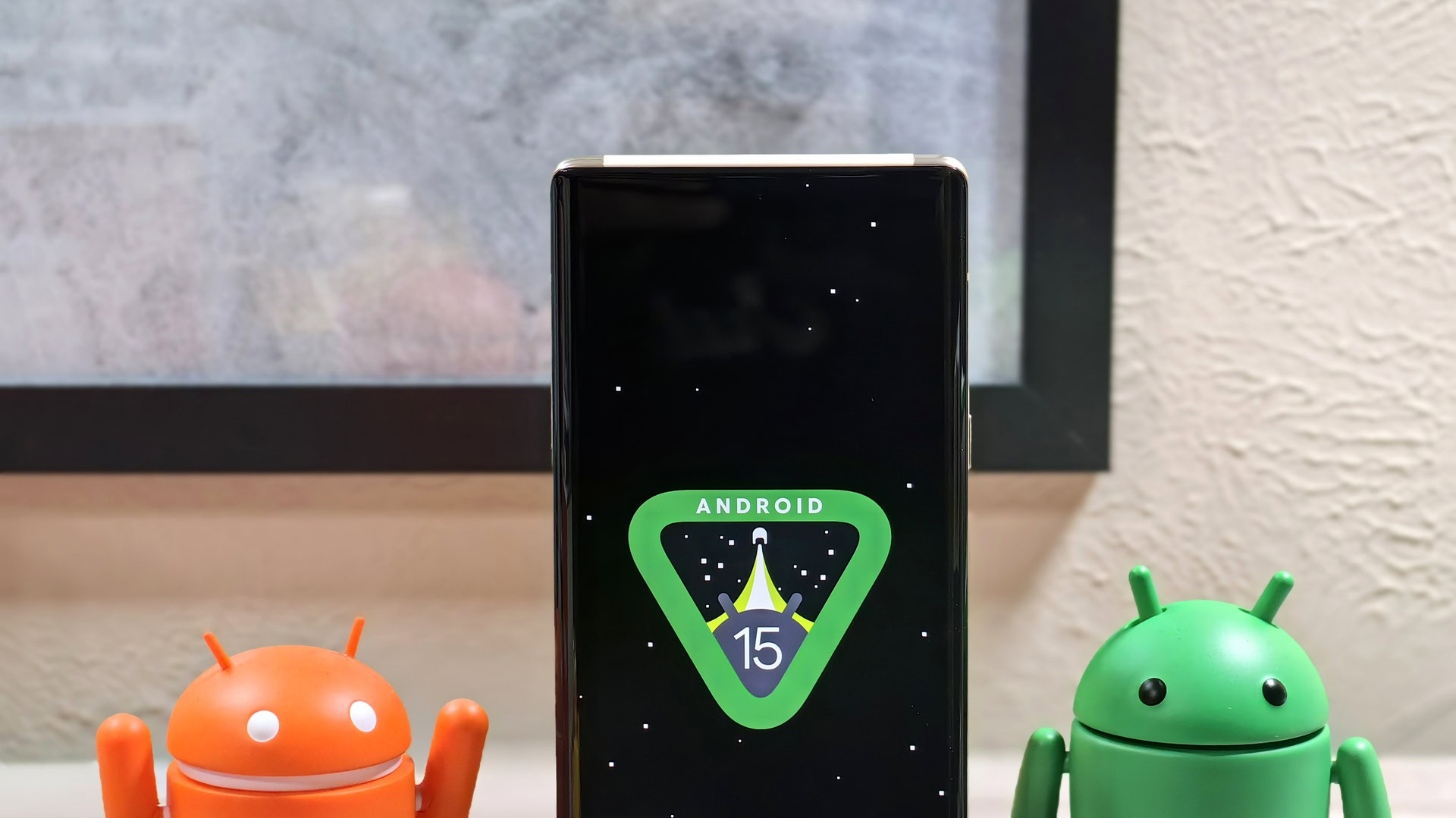




 English (US) ·
English (US) ·